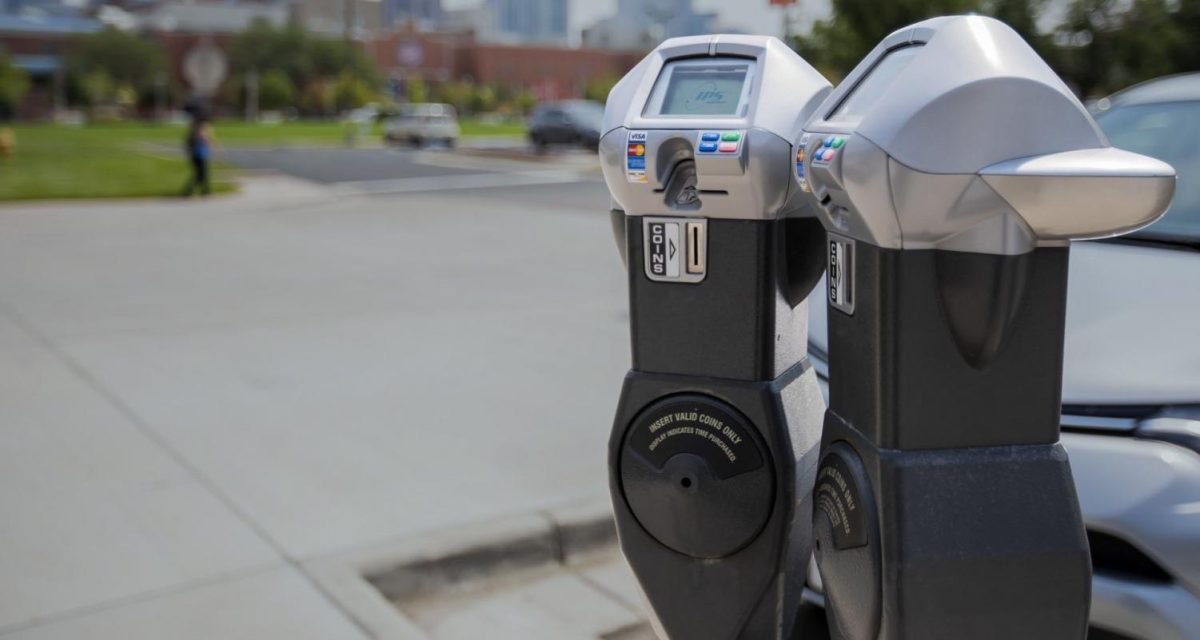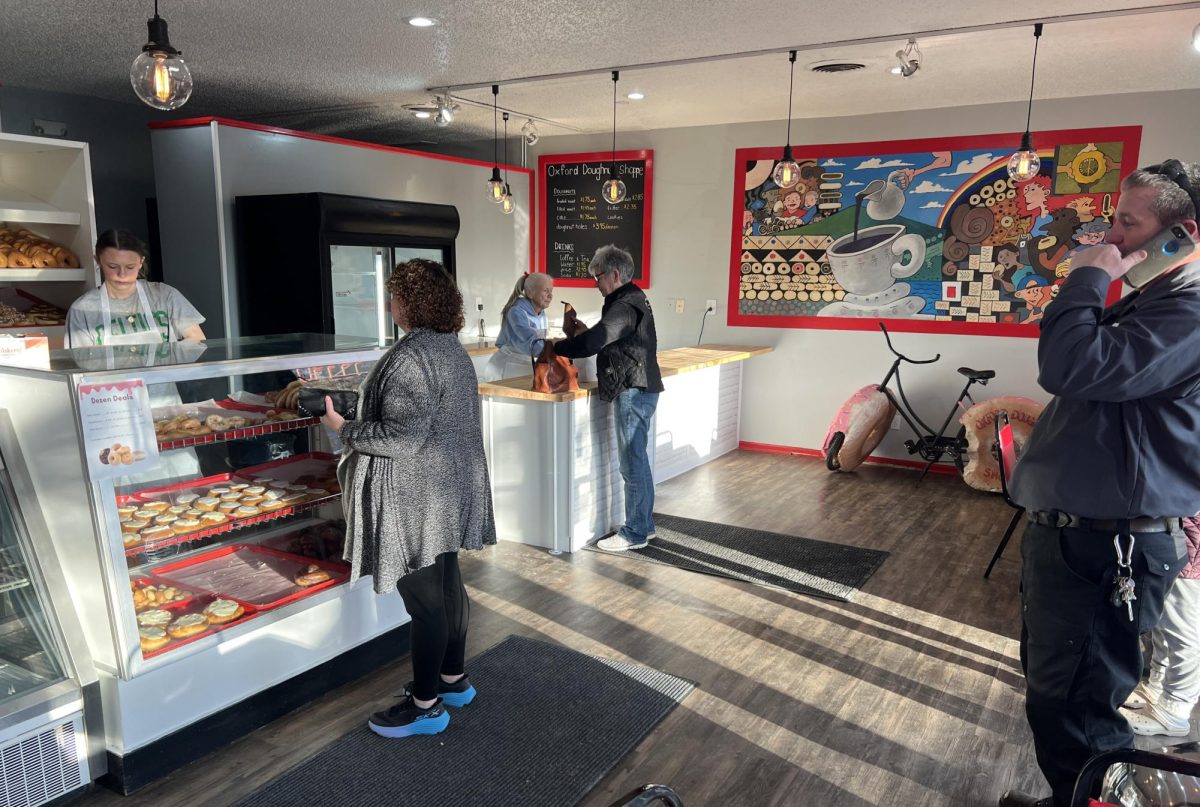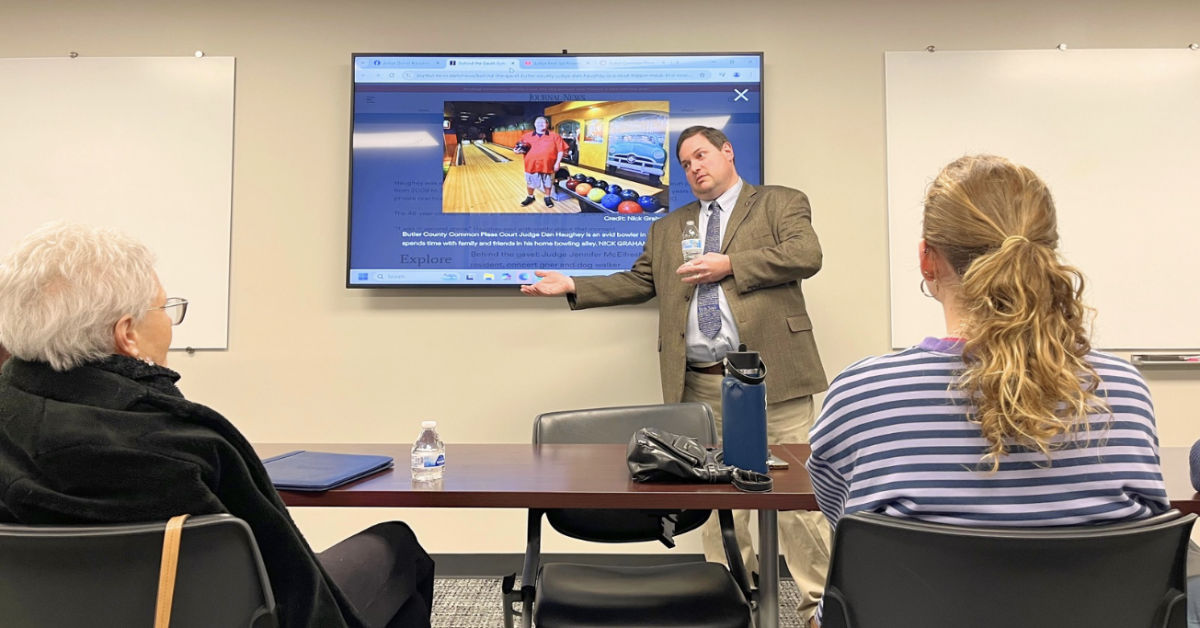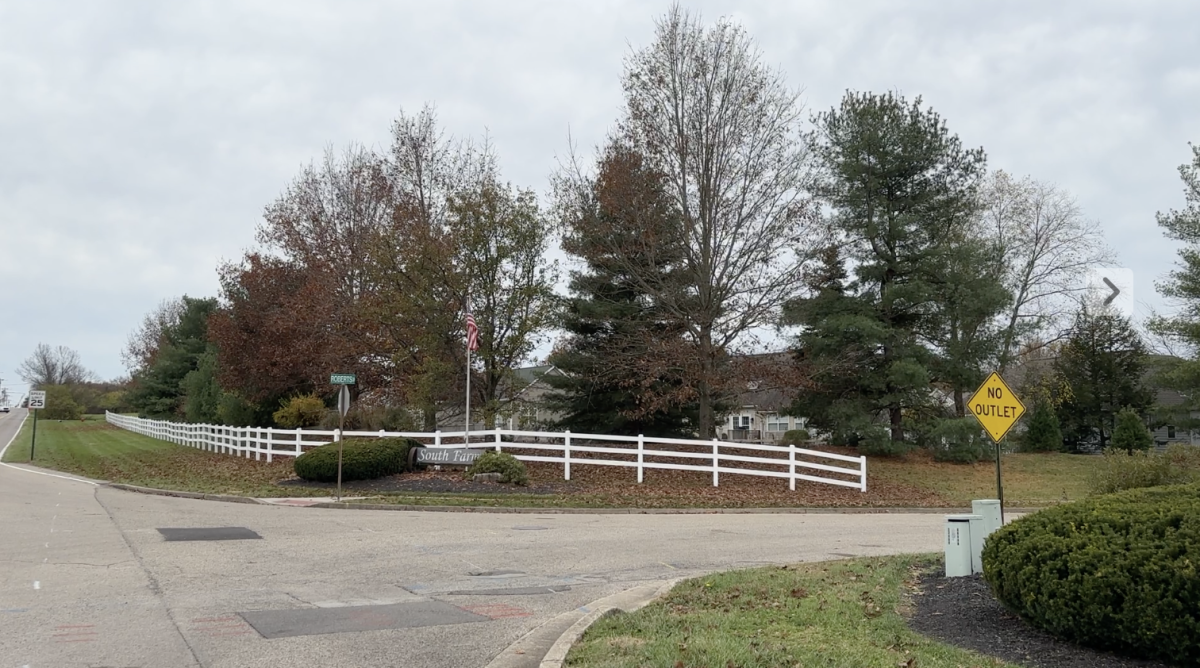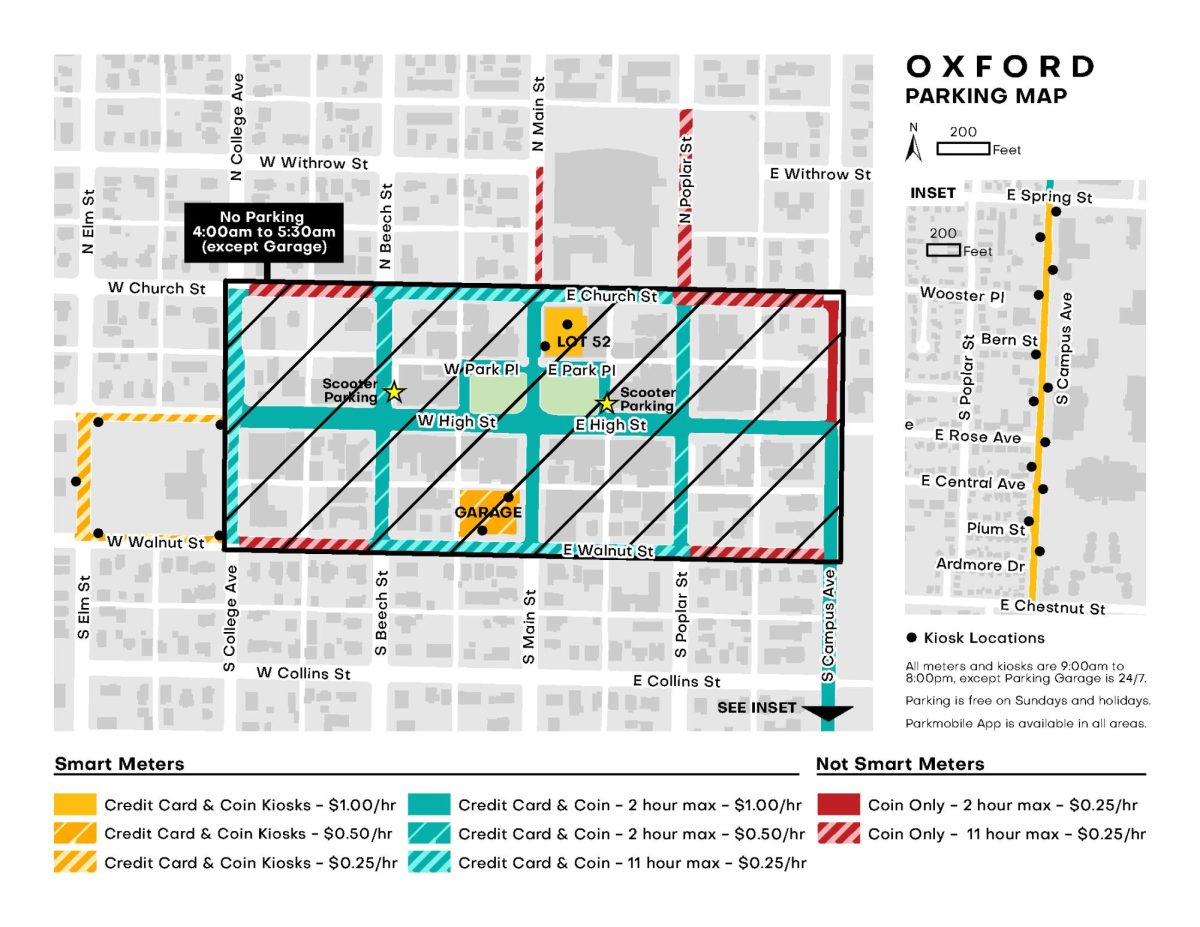“Smart meters,” letting you pay to park with a credit card or smart-phone app, will be tested in uptown Oxford during a trial period for 60 days beginning Jan. 2, according to Police Chief John Jones.
The trial period will take place immediately after the period of holiday free-parking at all city meters that runs from Dec. 16 until Jan. 1.
There are two main reasons for the change, said the chief.
“Times have changed and technology has changed,” said Jones.
Replacement parts for maintaining older coin-operated meters are less available because meter companies are transitioning to smart meter technology. People who park at meters are expecting equipment that allows them to use apps and credit cards for payment. Many people do not carry coins needed to pay the older meters, Jones said.
The 60-day trial will include 27 credit card meters in the zero block of E. High Street, one pay station at the North Main Street parking lot and one station at the city parking garage, at Main and Walnut streets. Oxford will also secure two multi-parking space pay stations at both the parking garage and parking lot.
The meters being used in the trial are coming from the IPS Group Inc., based in San Diego. According to Jones, the trial will be provided at no cost to the city, while the city retains the revenue from the meters during the trial period. However, city staff is recommending that parking be changed from 50 cents per hour to $1 per hour, he said.
The increase in price can be attributed to two factors.
“Part of it is the upgrade in infrastructure, so we need to cover those costs,” Jones said. “The other part is that credit card transactions have a fee and the minimum limit is a dollar.”
According to Jones, updating this type of infrastructure has been a goal of the parking staff and police department for some time, as well as the city council.
Jones said that the council will vote on whether to approve the new meters after the trial period ends. While the council has not approved them yet, it has budgeted money for 2020 to purchase as many as 323 of the smart meters.
To evaluate the effectiveness of the trial, Oxford will analyze collection receipts to see what type of payment methods are the most common, see if they generate expected revenue, and take the opinions of business owners and residents into consideration.


